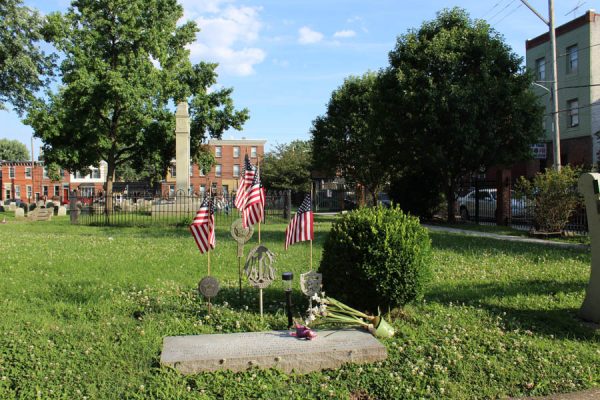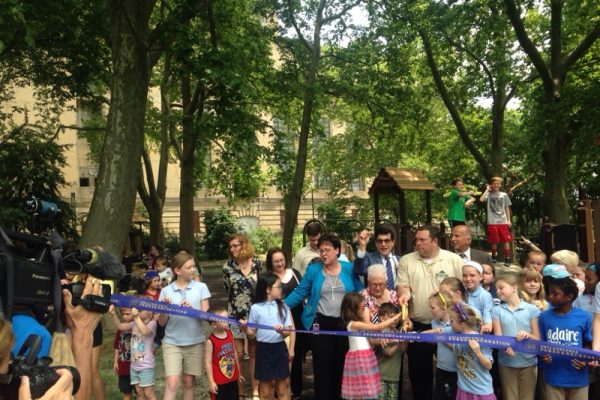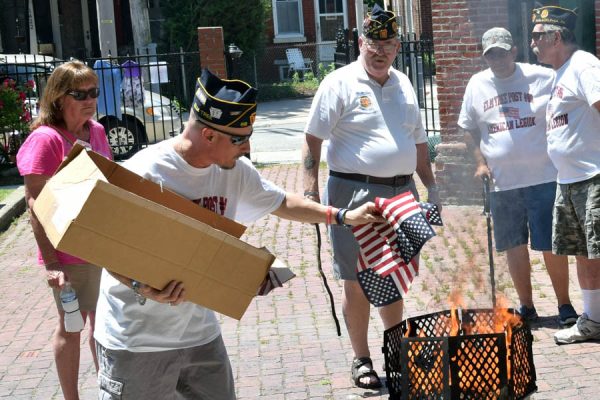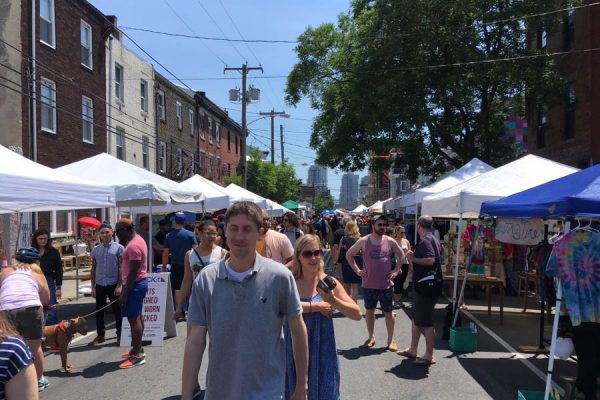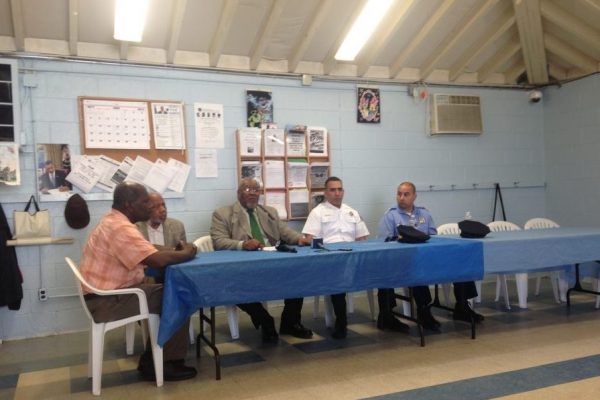A Neighborhood Reconciles It’s Past and Future
THIS STORY IS PART OF AN ONGOING SERIES ABOUT THE EFFECT OF METHADONE TREATMENT ON INDIVIDUALS AND THE NEIGHBORHOOD. PART II EXAMINED THE RAMONITA DE RODRIGUEZ LIBRARY; PART III TOOK A CLOSE LOOK AT THE ISSUES SURROUNDING THE INTERSECTION OF FRONT STREET AND GIRARD AVENUE; PART IV OUTLINED THE POTENTIAL OF VIVITROL, AN ALTERNATIVE TREATMENT; PART V LOOKED AT HOW POLICE AND POLITICIANS HANDLE THESE PROBLEMS:
Broken Windows Part I
Two brawling women crashed through the glass window at the Penn Liberty Real Estate office on Marshall Street at Girard Avenue one October afternoon. Owner Ray Caceras knew it was people from a nearby methadone clinic. He also knew he would have to pay for the repairs.
But one day last week, one of the women, Stacy, whose last name we are omitting to protect her privacy, showed up at the Penn Liberty door to apologize to Caceras.
“I just need you to know that I didn’t start that fight that day,” Stacy told Caceras. “I was punched right there. But I will help you pay for it.”
Caceras wants Stacy to pay her half of the damages. Stacy, who is on a tight budget while receiving Supplemental Security Income (SSI), has agreed to pay Caceras back in monthly installments taken from her welfare checks.
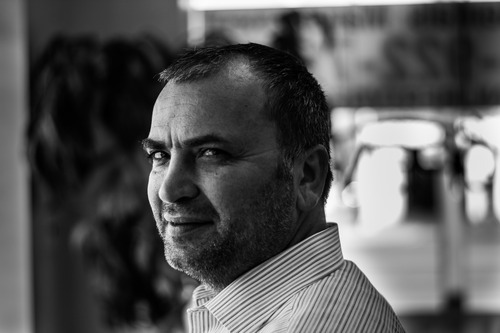
While acknowledging her duties to pay Caceras back for his broken window, Stacy also had advice for the realtor.
“[At] any other of these stores, if we [were] to hit a window, your window is supposed to spider-web,” Stacy said, in reference to shatter-proof glass that some storefronts have.
“So it’s my fault?” Carceras asked.
“No, what I’m saying is these ain’t the right windows to be in the front,” Stacy said.
“I’m not worried about that,” Caceras said. “What’s not going to happen is people fighting and coming through my window.”
Caceras said the situation is far from unique.
According to Carceras, business owners in the area struggle with methadone clinic clients and, what they believe to be, drug dealers each day. They hang out near Fresh Donuts (630 W. Girard Ave.), right on the outskirts of Northern Liberties. The Goldman Clinic, one of the clinics in the area that provides methadone, is located a block away at 8th and Girard.
According to Carceras, the situation makes it difficult to sell and rent property.
“Folks just say, ‘No, man, you got drug dealers out here,” Carceras said.
Sam Bird recently started a business in the neighborhood. He operates a laundry service at 7th and Girard, which shares a parking lot with Fresh Donuts.
“They would literally make drug transactions right in this parking lot,” Bird said.
“[On] day one … I said…‘Listen, today’s your last day. From this point on I’m the new owner,” Bird said.
Cultured Couture (703 W. Girard Ave.) owner Eric Honesty said the questionable activity costs him business.
“People just drive by,” Honesty said. “They don’t want to stop … because there’s just a bad energy out there.”
Ron Pope, director of the Goldman Clinic, said he understands local business owners’ situations but is not ready to accept all of the blame. He maintains that not all of the people out there are Goldman clients.
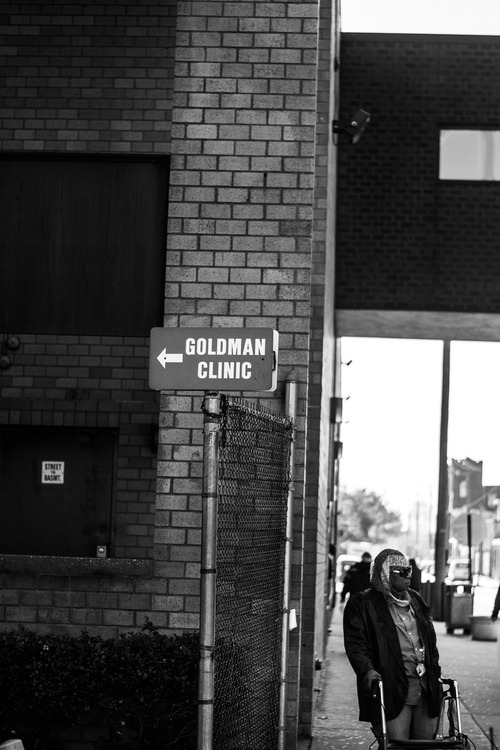
“There are Philadelphians that are walking up Girard Avenue, there are other people [from] other clinics … and then there are predatory people who are coming through here,” said Pope. “They’re not all Goldman clients and there’s some perception that they are.”
Pope and his team point to their community outreach programs as evidence that they do care.
Interested in this story? Check out PART II
“We work with the 26th [Police] District’s Advisory Council (PDAC),” Pope said. “We had two meet-and-greet meetings with the community.”
Pope said the clinic organized two community clean-ups. Their clients who needed to do community service received certificates. The area cleaned was Girard Avenue from 8th to 6th Streets.
“I know we’re going to continue to do that,” Pope said.
But people like Caceras and Bird want more done and a local politician agrees. Bird said Goldman is actually obligated to do more.
“You can’t just dump them on the street,” said State Representative Curtis Thomas (181st District). “You can’t just give them methadone and expect everybody to do what they’re supposed to do.”
Thomas cites a potential crime situation where the clinic’s clients congregate. The loitering group can be a prime target for drug dealers. Thomas also notes that some clients sell their prescribed amounts of methadone, only to use a loophole to receive more.
“If you … call the police and say ‘somebody took my methadone’ and the police make a report, you can use that report to get more methadone,” Thomas said.
The potential risk for that is even greater over holidays when the clinic closes. Take home doses are normally reserved for clients who meet certain criteria. Because of the planned closure people who otherwise would not receive a take home dose do. More take home doses means that there are more opportunities to take advantage of this loophole. Pope said that rarely happens.
“If a person goes to the police and reports it that kind of legitimizes it,” Pope said. “But we get very few of those.”
Pope said the police and local businesses have his number. He’ll check out the situation but, due to the Health Insurance Portability and Accountability Act (HIPAA) privacy laws, he is not allowed to acknowledge if the person causing an issue is a client.
“The HIPAA laws are serious,” Pope said.
Thomas is looking at laws too.
“One of the policy issues that I’m looking at is to amend all of these clinic contracts and require [them] to provide … more support services,” Thomas said. “You’ve got to have something for them to do; recreation, work, or study. Something.”
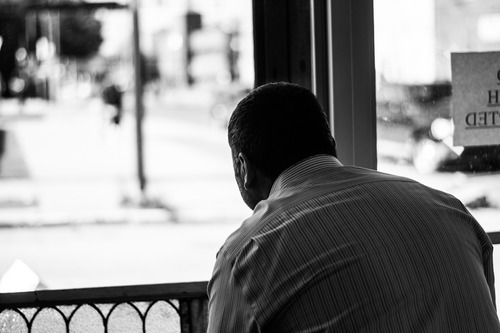
After receiving their methadone many clients end up at the Ramonita de Rodriguez Branch of the Free Library of Philadelphia.
“Some of them go in the library and do research and keep themselves busy,” Thomas said. “[But] a lot of them are just sitting in there.”
Lisa Chianese-Lopez manages the branch. She tries to help folks who come in no matter what their situation. But there are limits.
“A lot of times they want to go on the computer, which is fine,” Chianese-Lopez said. “But other times they sit in and doze off. We can’t allow that.”
The Free Library of Philadelphia sets standards of acceptable behavior. Sleeping is not permitted.
Stacy doesn’t spend all of her time grappling with others– most days she uses the library’s services to overcome her dyslexia.
“The lady at the library gets a CD and she puts the stuff on the [the screen],” Stacy said. “So I can read and I’m trying to memorize words.”
She said she’s embarrassed about the fight. But the interaction with other methadone users between the clinic and the library is difficult to avoid.
“We’re addicts and this is all we got,” Stacy said. “This is the life that we’re used to.”
This story is a part of an ongoing series about the effect of methadone treatments on individuals and the neighborhood.



